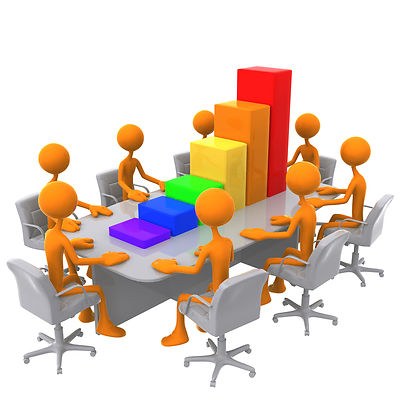
Making Meetings Meaningful
As a companion piece to our special CloudFocus Weekly podcast on meetings here are some meeting ideas, tips and best practices as food for thought.
Purpose Over Procrastination
The first thing to consider in scheduling and attending meetings is to avoid them. Most meetings don’t need to happen and are used as a way of deferring work, not doing it. Before scheduling a meeting ask yourself or others if the work could be handled differently, with an email, a quick call or a shared document.
Pick the people to attend carefully and leave out anyone who can be satisfied with a quick recap after the meeting (see Follow Ups & Takeaways). Also consider changing the length of the meeting to speed things up or get through complicated issues.While most calendars default to 60 minutes, a majority of meetings can be done in 30 and some bigger ones need 90 to get everything done. If you are pushing a two-hour meeting, consider breaking it up into logical chunks as capturing attention for that long can be difficult.
Don't Stand for Standing Meetings
A long time project management technique is to set up standing status meetings to keep the project on track. In my experience, these meetings are generally a waste of time and only do the reverse, which is to slow a project down. Going over the status or a project or an issue list is fine, but why wait until the next meeting? Meetings should be organic and agile, done when and only when they need to be coordinated by the people running the project.
In some phases of a project, twice-a-day meetings could be required, in other phases once a month is enough. People tend to put off work until it is needed for the meeting so don’t wait, break into smaller groups and meet for as much or as little as you need. Remember that work is done before and after the meeting, not during so more meetings means less work is being done.
Core Coordination
Scheduling meetings between different organizations can be difficult without the ability to see availability. I suggest finding one representative inside of each organization who has access to the internal calendars and schedule with them. The email chains are quicker and if it comes from the right person with an internal meeting request, the chances of someone missing it are lowered.
Always Include Agenda
No matter how big or small, always include an agenda in a meeting request. A best practice is to make the agenda match the size of the meeting. If its a quick catch up between two people, a subject line or sentence will suffice. If it is an all-day conference with forty executives, a detailed, time noted and advance distributed agenda is called for.
To make the meeting better, go over the agenda at the start of the meeting, setting forth the goal and purpose so everyone is on the same page then stick to it both in terms of time and content. Also, don’t assume that everyone in the meeting knows exactly what is going on, so don’t be afraid to reestablish the context, giving a background into the project, issue or overall goal.
Follow-Ups & Takeaways
If everyone walks away from a meeting and nobody has anything to do, the meeting was a failure. The entire reason to meet is to coordinate the next steps and actions on whatever you are meeting about. Documenting the meeting is important but documenting the follow-ups, next actions and takeaways is critical. The meeting size and audience is a good indicator in terms of what post meeting documentation needs to be distributed.
Small internal meetings need less formal follow-ups than big, multi-organizational meetings that call for distributed takeaways with both who is responsible and when they should be done. Don’t rely on individuals to capture their own tasks unless you see them writing it down. It is better to be overly transparent than to miss critical follow-ups.
Do you have tips on making your meetings more meaningful? Share them below in the comments, on our Facebook page or @JasonMAtwood on Twitter.
